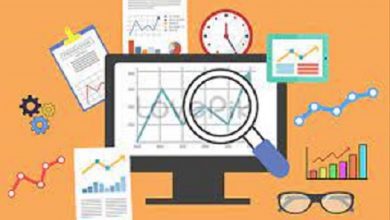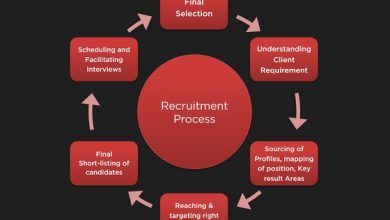What is financial control and How to have with benefits and importance
What is financial control
Financial control is an organization of personal expenses. Thus, the objective is to analyze what are the fixed and variable expenses and also the available revenue to supply all needs.
Usually, this organization of personal expenses is done on a monthly basis, since most people receive their salary once a month. However, some attitudes must be daily.
While it may initially seem boring to control so much finances, in reality such control results in freedom.
It may seem contradictory, but only with financial control can we be free to make our dreams come true.
How to have financial control
To make financial control part of your routine, some actions can be taken, such as:
1- Income
The first step to financial control is your income. Income is the net amount you receive, after all discounts.
If you have any source of extra income, deriving from some additional work that you do, it is also calculated together with the fixed income.
However, if this extra income is not received every month, it is better not to regard it as fixed, but rather as extra money that can be invested.
Therefore, knowing your income is important so that you don’t spend more money than you really have and end up indebted.
2- Financial control X debts
If you have debts, plan and pay them all. Overdue bills cause you to spend money paying interest instead of investing.
The ideal is to try to renegotiate the debts or split up and get rid of them all. In short, it’s a simple equation: with financial control you don’t get into debt, so if you have debt you don’t have control over your personal finances.
3- Expenses
We all have some unavoidable expenses, such as water, energy and internet. Make a list of your fixed expenses. Even those that change a little, like the water bill, can be considered as fixed.
With this list put together, you will be able to see what your true cost of living is and this is very important for organizing your personal finances.
Because, with the value of your living expenses in mind, you won’t commit the money – necessary for your fixed needs – with superfluous expenses.
4- Other expenses
When making the cost of living list, you may have noticed that many other expenses did not make it onto that list. Well, they are considered extra expenses and usually take up a good part of your income.
Do the following exercise: write down all your expenses daily. Everyone, from the beer on the weekend, to an escape to the mall.
At the end of the month do the math and find out how much you spent. It may seem a bit boring or controlling, but to have a financial organization, you need to know where the money is going.
5- Types of expenses
Another method that can help with personal financial control is to separate expenses by category. Once you’ve separated the fixed from the variables, this one will be easy to do. Just separate, for example, housing, transport and leisure.
Spending categories help you identify the percentage of income you spend in each area of your life.
The result of this analysis is an awareness of how your personal finances are doing. Furthermore, from that point on, it is possible to see where there may be spending cuts.
6- Savings for financial control
The next step in organizing personal finances is to save money . While the habit of saving money is fundamental, it’s also important to be realistic and honest with yourself. That’s because, it’s no use proposing big cuts if you won’t be able to do it and you’ll just get frustrated.
Therefore, you should carefully analyze what expenses you can cut, of course, without depriving yourself of all the things that give you pleasure. Balance and sincerity are crucial at this stage.
Finally, in addition to cutting expenses, there are also ways to reduce expenses. One way to do this is to compare prices and ask for a discount.
But beware, supermarkets can put on discount pranks, so it’s important to look carefully if the cost-effectiveness of the products is worth it. In other places, such as fairs, it is possible to negotiate the values and, therefore, save by paying cash.
7- Plans
In order to have financial control, it is also important to plan . In other words, your plans may be to reduce costs to achieve a dream, or they may be to invest more.
Anyway, goals are personal, but they are necessary for a financial organization.
Goals and objectives function both as a motivator not to spend and as a controller of spending.
Another good exercise is to create a wish list. Put the wishes in order of priority and stick to it. That way, you’ll avoid impulsive spending, as you’ll know what your priorities are and you’ll still be able to plan for spending.
8- Annual accounts
Another step towards financial control refers to accounts such as IPTU and IPVA, which are paid annually.
It turns out that, normally, people do not organize themselves to pay these bills, even though they know they are to come. An interesting way to pay them is to set aside an amount every month. That way, when they arrive, you’ll be ready.
9- Emergency reserve
The emergency reserve serves as an allowance for unexpected needs. That is, it shouldn’t be used for anything else, only for real emergencies.
The value of this reservation varies depending on your cost of living, but the indicated is that the balance of the reservation is equivalent to six months of your current cost of living. In addition, this is an important step towards financial control and must be taken before starting to invest.
10- Investment
Finally, after you’ve followed all of the above steps and are slowly gaining financial control, it’s time to start investing.
What are the benefits of financial control?
First, it is important to point out the benefits of financial control . So, in addition to realizing the advantages of carrying out this type of operation , we also check each of its details — such as its relationship with the important planning phase . Let’s get to know some of these benefits?
Integration with business data
The financial control is the first step to make an effective integration of company data and prevent the chaos initiate between the management and the different departments. For this, in addition to organizing all the information on cash flows and the income statement for the year ( DRE ), we must also count on the support of technology, after all, with it, we can make the whole process faster.
Speeds up decision making
Another great advantage of having effective control of finances is that, with the data in order, we can quickly consult it to make decisions at the right moments. This avoids reactive management , which just puts out fires, giving way to proactive management .
Provide accurate feedbacks
Finally, another great benefit of the control activity is the fact that the manager can provide accurate feedback to managers and other employees . After all, he will have the information he needs in real time, and will be able to correct the course whenever he thinks necessary. Thus, employees are kept informed and management is more active.
Why is it important to have financial control?
If you have a business or intend to open a company, surely your intention is for this establishment to work and make a profit, isn’t it? Only with good financial control can companies remain active in the market in a growing and healthy way.
It is essential that the business finances are closely monitored to ensure that the plans and strategies explained are completed in the best possible way. In addition, if something happens outside the plans, financial control will allow you to make an accurate and coherent decision, without major headaches.




